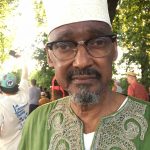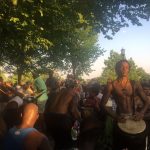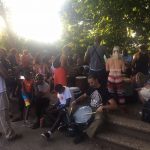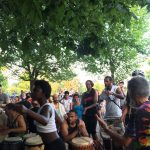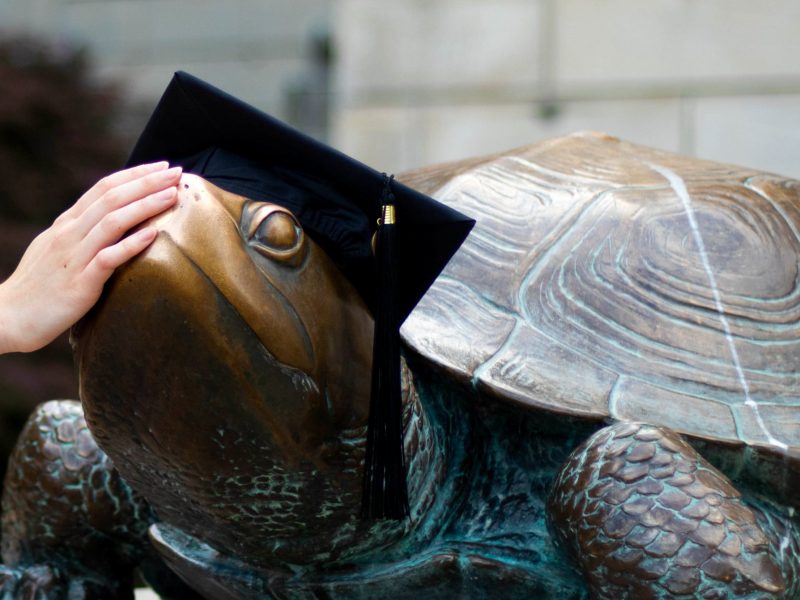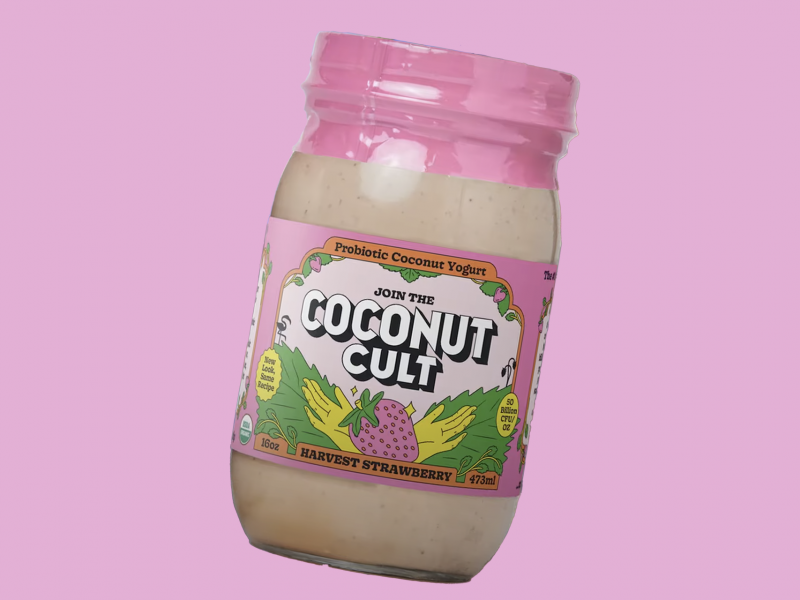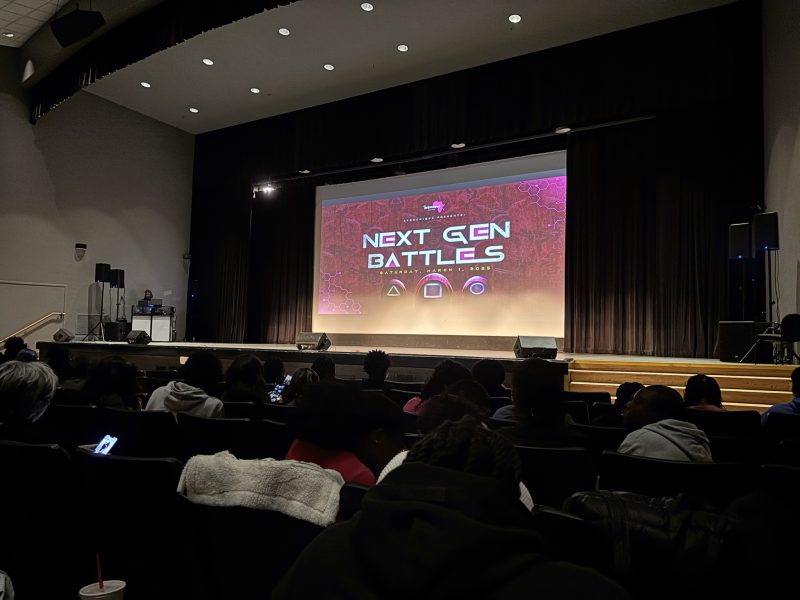Enter Meridian Hill Park on any warm Sunday afternoon to be lifted by the powerful sounds and whimsical dancing that have defined a neighborhood for more than 50 years.
Tucked in a corner of the Columbia Heights neighborhood, this park pays homage to African percussion with an array of drummers, dancers and blissful onlookers. While the musicians most often play West African instruments such as djembes and bougarabou drums, people from all walks of life come together to enjoy the music.
Lunhoco Lee, 41, is originally from Angola and visited the circle as a way to stay true to her cultural roots. Before moving to Washington, D.C., in 2006, she got her dosage of African percussion at a similar tradition in Prospect Park in Brooklyn, New York.
“The drums have a lot to do with spirituality,” Lee said. “Me coming here, it’s like going to church. It gives me the energy for the rest of the week.”
While the Meridian Hill Park event has a particular charm to it, drum circles celebrating African ancestry can be found across the country. While the activity is a deeply-rooted tradition, gatherers have taken a modern approach to organizing the meetings through websites such as drumsontheweb.com, rhythmweb.com and drum-circle.org. These sites list drum circles by state and type.
Although the park’s official name is Meridian Hill, Dauod Sharif, 62, refers to it as Malcolm X Park like many of the locals.
“It has a gravitational pull on you,” Sharif said. “The rhythm is deep in my genetics and my DNA. … You just get into the groove and get with the spirit of the drummers and before you know it there’s rhythm coming out of you that you never knew were inside of you.”
While the style of music may be niche, people from all age groups and races enjoy the grooves. The intense drumming serves as medium to bring together people who otherwise have little in common and distract them from difficulties in their personal lives.
The tradition is said to have begun during the Civil Rights Movement as a way to uplift African-Americans during contentious periods and inspire them to persevere. This historical significance may also serve as the basis for the disillusionment some residents feel as they watch insular communities embrace what was once a word-of-mouth gathering.
Longtime djembe player Obar Moyo, 60, says he comes to the drum circle as if it were Sunday service and believes the spirit of the circle has been negatively impacted in recent years.
“Brothers needed a way to heal. This influx of other people that think they can just jump in here and make this thing happen,” Moyo said. “This thing has been going on for 400 years and you need to fit in. The circle belong to the Africans and the Native Americans.”
Indeed, the drum circle has evolved as Washington has experienced intense gentrification in recent years, and was named one of the fastest gentrifying neighborhoods in 2012. But as toddlers, grandparents and even hipsters come together to enjoy the atmospheric music, it is clear that the drum-playing never lost a beat.

